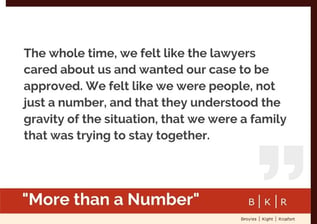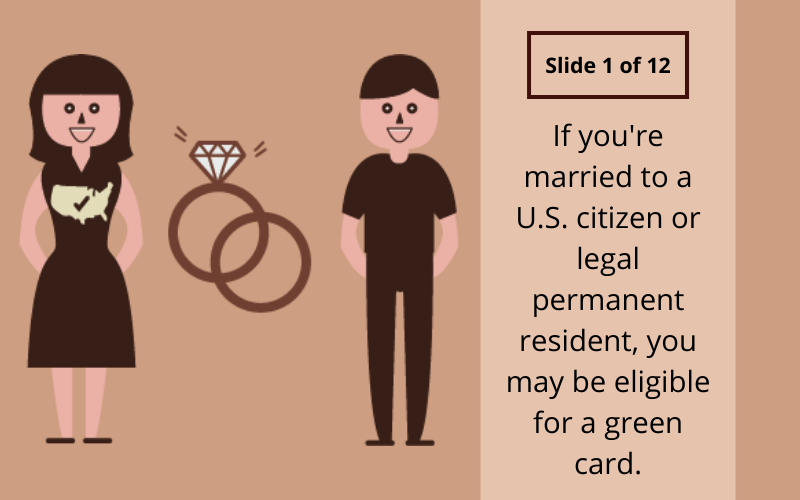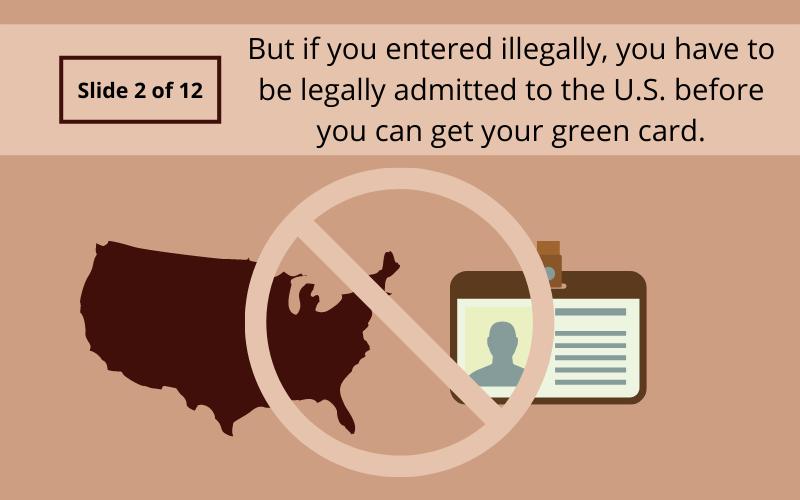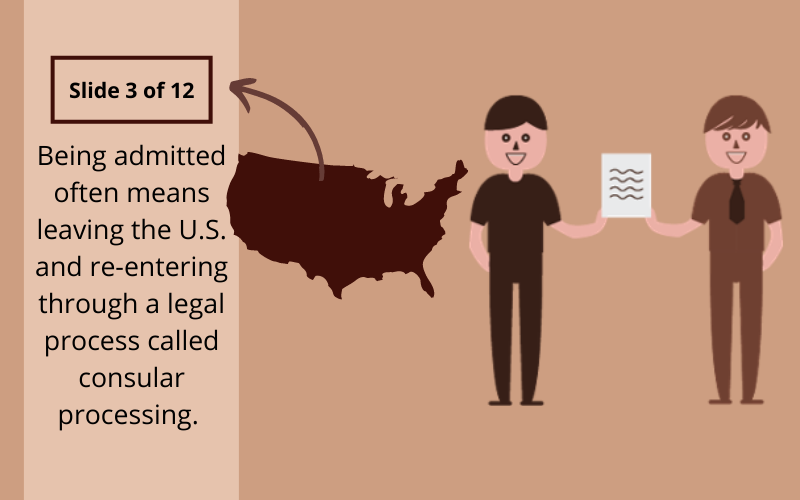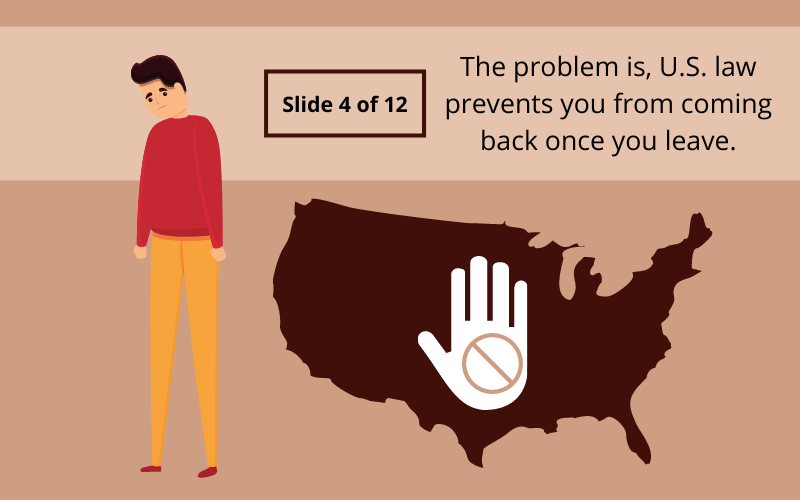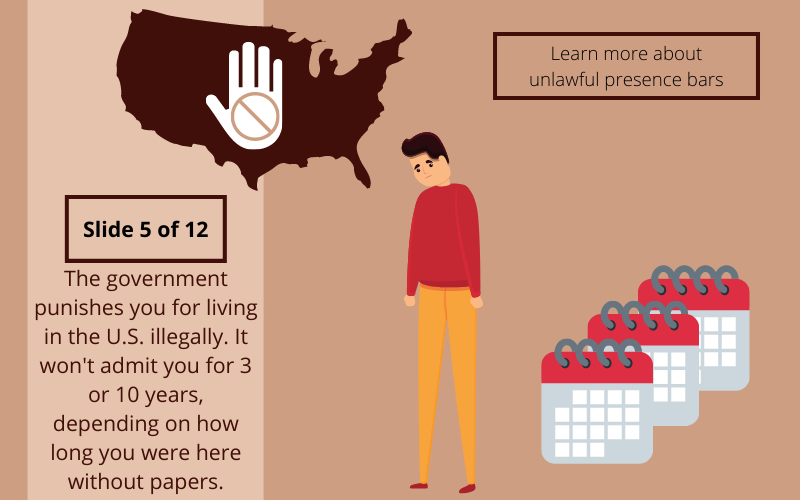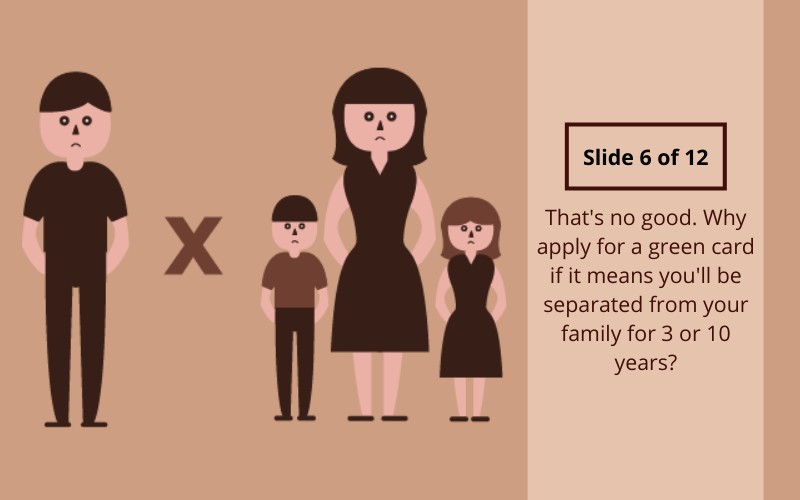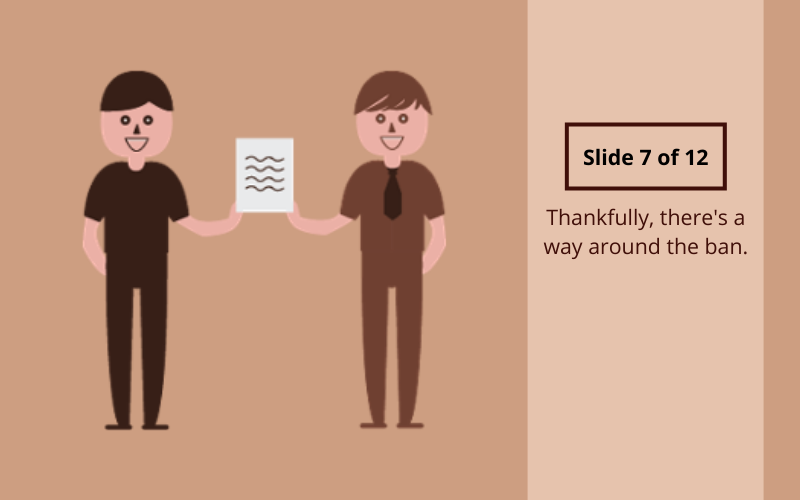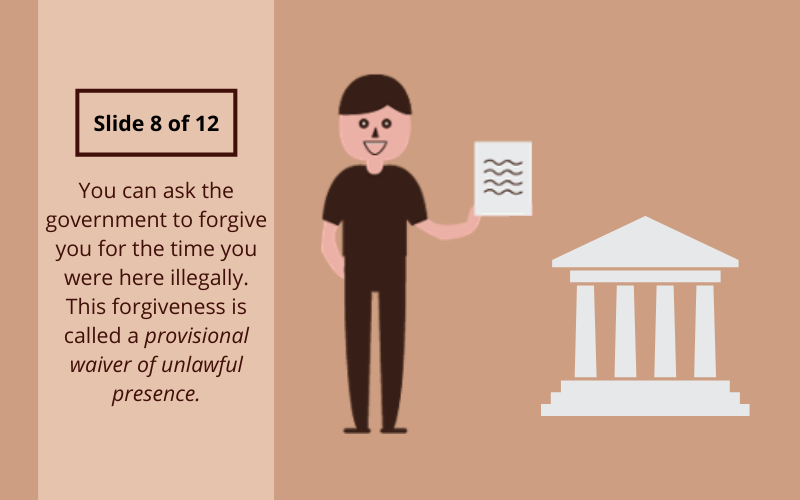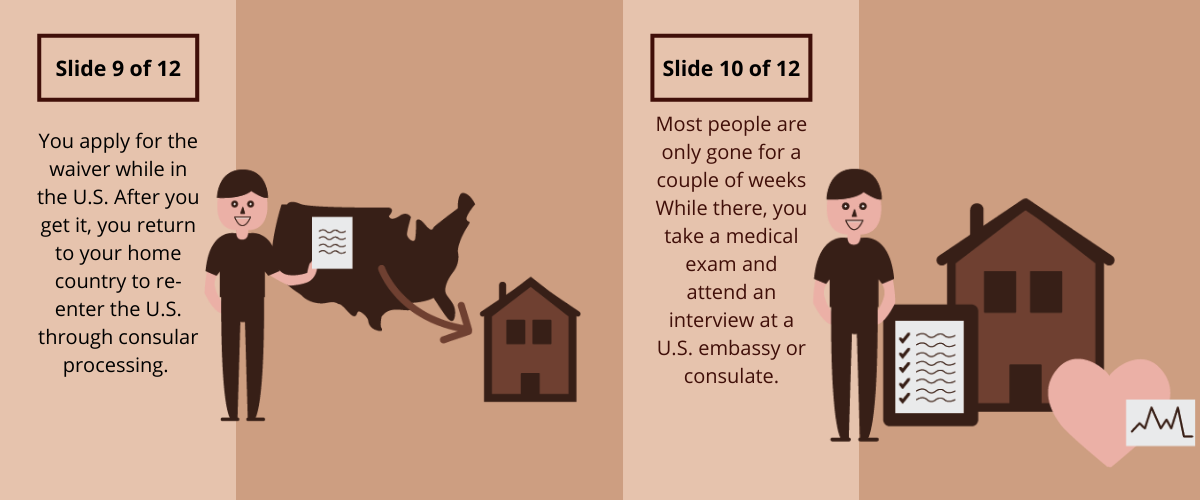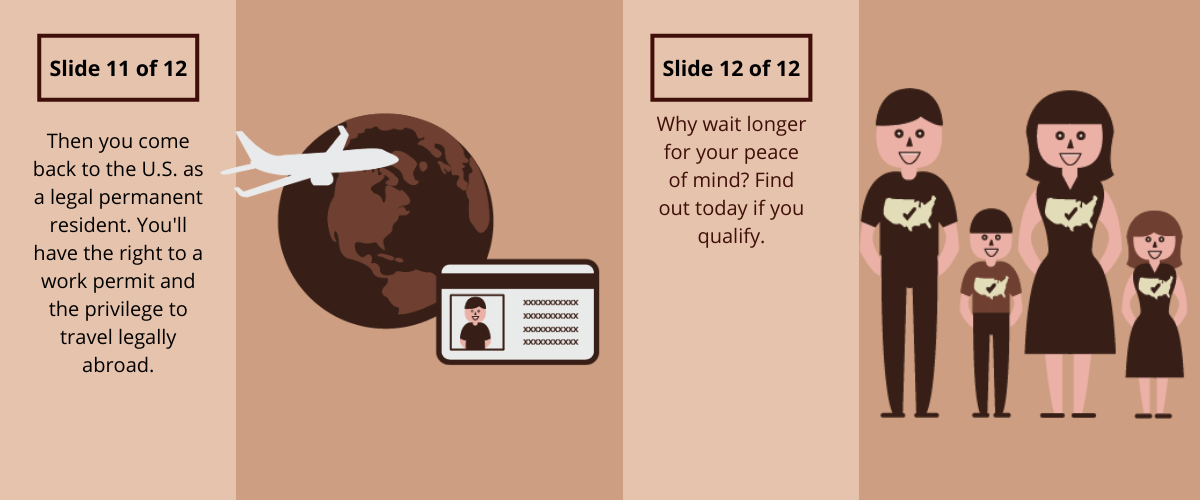The
Provisional Waiver

KEEP YOUR FAMILY TOGETHER AND IN THE U.S.

Note: You May Need a Different Type of Waiver
This page is about the provisional waiver of unlawful presence, which is for people who have been in the U.S. illegally and are married to, or are the children of, U.S. citizens or lawful permanent residents.
Depending on your situation, you may need this and/or another waiver. If you apply for an immigration benefit without applying for and receiving the needed waiver(s), the government won't approve your application.
WATCH NOW:
Is it true that if you can't apply for an immigration benefit if you entered the country illegally?
![]()
An Easier Way to Get a Green Card

If you're married to a U.S. citizen or legal permanent resident, you may qualify for the provisional waiver program, which lets you get your green card without serving the dreaded 3- or 10-year bans. Click the slideshow to see how it works.


Have a Qualifying Relative
Waiver applicants must have a spouse or parent who is a U.S. citizen or permanent resident. In the waiver application, you must prove that your qualifying relative will suffer extreme hardship if you're banned from the U.S. for 3 or 10 years.
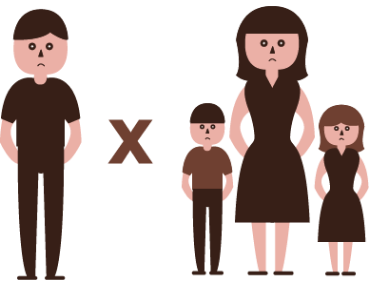
Show Extreme Hardship
All separated families will suffer, but extreme hardship is something more than loneliness or inconvenience. To meet this legal standard, our attorneys meet with you to identify the elements of your case that make you stand out from the rest.
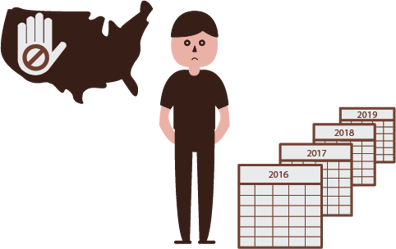
Work on Next Steps While You Wait
Processing times for USCIS vary, but you can count on BKR to keep preparation of each step of your case moving while we wait on the government to process each step.

Trust a History of Success
Over the past 15 years, we've helped thousands of immigrants get green cards and stay with their families. That's a lot of happy people. Why wait? You could be next.
An Opportunity That Changes Lives

Gerardo Hernandez was sick of the stress of being undocumented.
Together with his wife, he applied for the provisional waiver.
Now they relax, knowing he's protected against deportation and able to work and drive legally.
"Out of the whole process, what made me the happiest was when
I came out of the airport and saw my two daughters and my wife waiting for me.
We kissed, we hugged, we laughed. There were no words."
1.) Have a Qualifying Relative
You must have a qualifying relative who is a U.S. citizen or permanent resident. This is usually a spouse.

2.) File an I-130 Form
You must have a completed I-130 form on file with USCIS before you can apply for a waiver. An I-130 form shows that you are the immediate relative of a citizen or resident and qualify for a green card.
For more information on this, see our AOS page.

3.) Show Extreme Hardship
Your application must show that your qualifying relative (probably your spouse) will suffer extreme hardship if you have to leave the U.S. for more than a short time.
Extreme hardship is a legal term that means more than just missing you. It can include things like being unable to deal with an illness, needing to care for family members who have illnesses, or no longer being able to work. There are many examples of extreme hardship. An attorney can help you identify which one you'll use.

4.) Verify that you're eligible
Talk to an attorney about your criminal record, if you have one. Some offenses might mean you need another, different waiver. An attorney will also need to verify when you entered the United States and how long you stayed each time to make sure that you're eligible for a green card.

1.) Have a Qualifying Relative
You must have a qualifying relative who is a U.S. citizen or permanent resident. This is usually a spouse.

2.) File an I-130 Form
You must have a completed I-130 form on file with USCIS before you can apply for a waiver. An I-130 form shows that you are the immediate relative of a citizen or resident and qualify for a green card.
For more information on this, see our AOS page.

3.) Show Extreme Hardship
Your application must show that your qualifying relative (probably your spouse) will suffer extreme hardship if you have to leave the U.S. for more than a short time.
Extreme hardship is a legal term that means more than just missing you. It can include things like being unable to deal with an illness, needing to care for family members who have illnesses, or no longer being able to work. There are many examples of extreme hardship. An attorney can help you identify which one you'll use.

4.) Verify that you're eligible
Talk to an attorney about your criminal record, if you have one. Some offenses might mean you need another, different waiver. An attorney will also need to verify when you entered the United States and how long you stayed each time to make sure that you're eligible for a green card.
For more information on this, see our AOS page.

We Can Help

Most initial consultations about the waiver are free. Let us know when you'd like to meet with an attorney.



.png?width=520&name=BKR-Law-Quote-1%20(1).png)

.png?width=400&height=600&name=Victoria%20Headshot%20(1).png)

